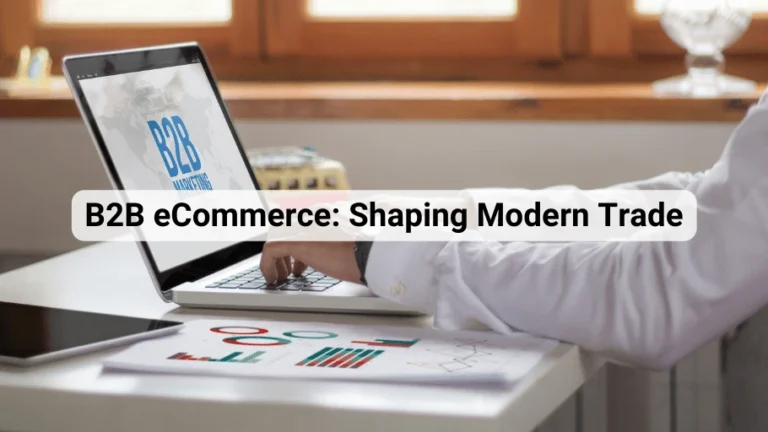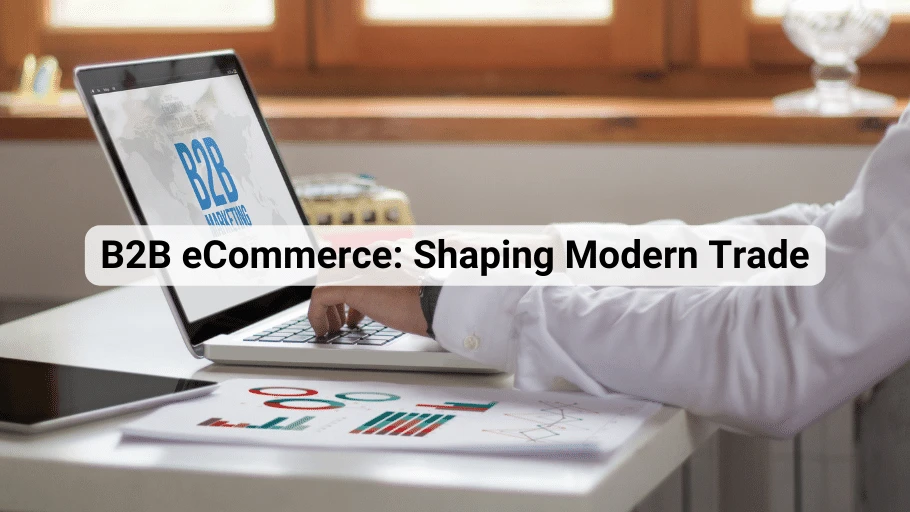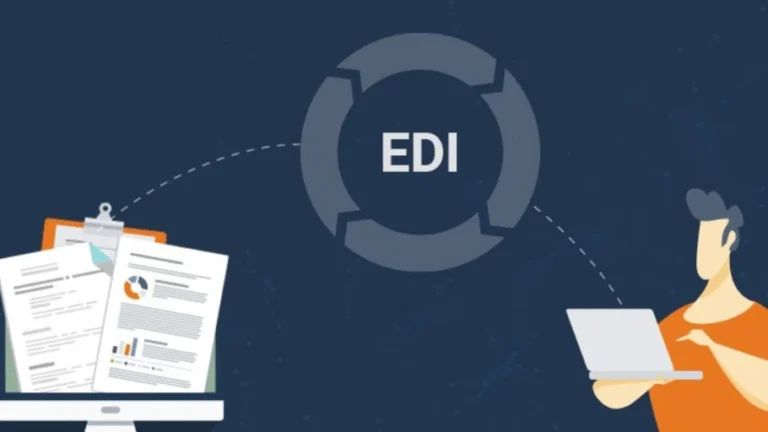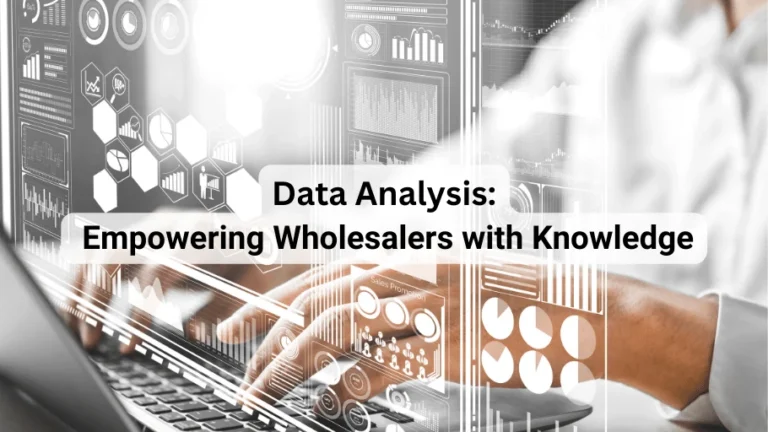B2B eCommerce involves businesses buying and selling products and services to other businesses online. B2B businesses are embracing eCommerce for its many benefits, such as streamlining sales, reaching a larger audience, and increasing revenue. By lowering costs and expanding the customer base, B2B eCommerce is now an essential part of many B2B operations.
B2B businesses will utilize a B2B eCommerce platform to provide a seamless, efficient, and tailored experience to their B2B customers. B2B eCommerce platforms offer a range of features and tools that enable B2B businesses to create and manage their online store and customer experiences.
In this article, we guide you through the world of B2B eCommerce, including:
- What is B2B eCommerce?
- How Do B2B eCommerce Businesses Work?
- Types of B2B eCommerce Businesses.
- How to Get Started with an eCommerce B2B Business.

What is B2B eCommerce?
B2B eCommerce differs from B2C eCommerce in these ways:
- Transactions: B2B eCommerce transactions occur between businesses, while B2C eCommerce transactions occur between businesses and individual consumers. In B2B eCommerce, the transactions are typically higher in value and involve more complex negotiations, whereas B2C eCommerce transactions are generally simpler and involve smaller order values.
- Sales Cycles: The sales cycle in B2B eCommerce is usually longer and more complex than in B2C eCommerce. This is because purchasing decisions often involve multiple stakeholders within the buying organization, with longer research, evaluation, and approval processes. B2B eCommerce businesses must account for this complexity when designing their sales processes, incorporating measures such as lead nurturing, relationship building, and post-sales follow-up.
- Personalization: B2B eCommerce platforms must provide a more personalized experience than B2C eCommerce platforms. Since B2B businesses have unique needs, requirements, and preferences, B2B eCommerce platforms must offer customized pricing, tailored product recommendations, and personalized B2B customer support.
- User Experience: B2B eCommerce platforms tend to have a more complex user interface than B2C eCommerce platforms, as they often incorporate advanced features such as contract pricing, bulk ordering, and order approvals. These platforms also provide robust reporting and analytics features, allowing businesses to track their performance, customer behavior, and other important metrics.
How Do B2B eCommerce Businesses Work?
B2B eCommerce businesses will use a B2B eCommerce platform to manage the buying and selling process online.
What is a B2B eCommerce platform? It is a software solution that provides a range of features and tools that allow B2B businesses to create and manage their online storefront, list products, process orders, and manage customer relationships. B2B eCommerce platforms can be used to automate many of the sales and marketing processes, such as lead generation, customer segmentation, and customer relationship management (CRM).
The numerous benefits of B2B eCommerce software make eCommerce platforms the ideal choice for B2B eCommerce. B2B eCommerce platforms enable businesses to expand their customer base, increase revenue, and provide personalized experiences that meet B2B customer needs.
Types of B2B eCommerce Businesses
Some of the most common types of B2B eCommerce businesses include:
Wholesalers
Manufacturers
Distributors
How to Get Started with an eCommerce B2B Business
If you are interested in starting and managing a B2B eCommerce business, here are the steps you can take to get started:
Determine Your Business Model
To do this, consider the needs of your target audience, the competition, and your unique value proposition. You will also need to consider factors such as pricing strategy, shipping logistics, and customer support, all of which can significantly impact the success of your B2B eCommerce business.
It is also important to think about the scalability of your business model. As your business grows, you may need to expand your product offerings or adjust your pricing strategy to remain competitive. By considering the long-term viability and scalability of your business model upfront, you can ensure that your B2B eCommerce business has the potential to grow and thrive over time.
Create a Business Plan
Creating a comprehensive business plan is an essential step for any B2B eCommerce business. A plan will help you define your business goals, set realistic targets, and establish a plan for how to achieve them.
A business plan should outline the key elements of your business, including its mission statement, target market, and competition. Your business plan should include operational plans that outline how you plan to manage your day-to-day operations.
Your business plan should also include a detailed marketing strategy that demonstrates how you plan to attract and retain customers. Include financial projections that project your expected revenue, expenses, and profits to ensure that your business is financially viable and sustainable over the long term.
Choose a B2B eCommerce Platform
Once you have a business plan in place, you need to choose a B2B eCommerce platform. With numerous options to choose between, finding the best eCommerce platform for your business can be challenging. Focus on choosing a platform that offers features and tools that can help you create a user-friendly and efficient eCommerce platform for your B2B customers.
Customize Your Platform
Focus on Marketing and Promotion
Start Your eCommerce Business with Salesorder
Starting an eCommerce business can be daunting, but Salesorder can help make the process smooth and manageable.
Salesorder is an all-in-one ERP software designed for B2B eCommerce wholesalers. From inventory management and order processing to customer management and reporting, our comprehensive range of features have you covered to start and manage your eCommerce business.
Whether you are just getting started with eCommerce or looking to take your business to the next level, Salesorder can assist you to achieve your goals and grow your business. Our ERP software and customizable B2B eCommerce platform are fast to implement and affordable, making us the total solution for wholesale businesses.
Talk with an expert today to discuss your B2B eCommerce business.





